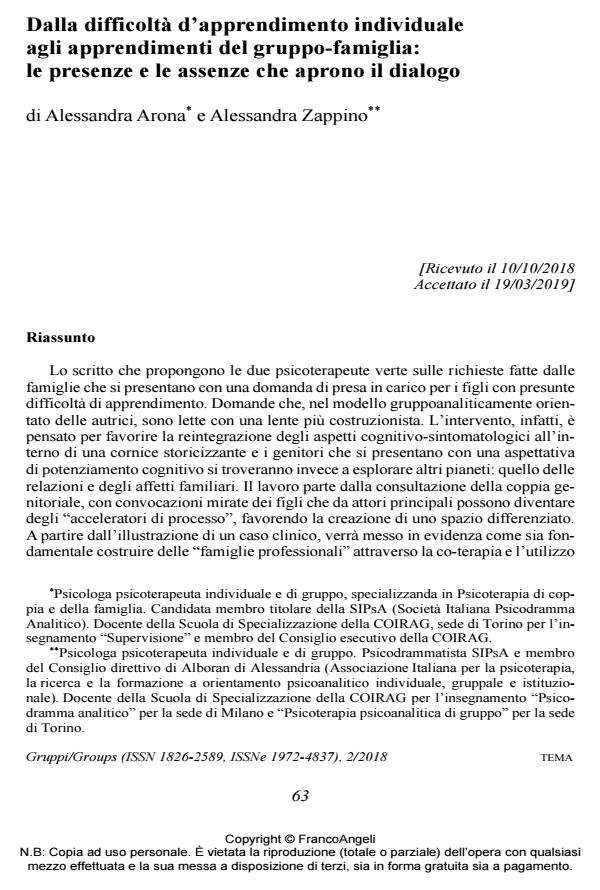From individual learning’s difficulties to group-family’s learning: presences and absences that open a dialogue
Journal title GRUPPI
Author/s Alessandra Arona, Alessandra Zappino
Publishing Year 2019 Issue 2018/2
Language Italian Pages 17 P. 63-79 File size 285 KB
DOI 10.3280/GRU2018-002006
DOI is like a bar code for intellectual property: to have more infomation
click here
Below, you can see the article first page
If you want to buy this article in PDF format, you can do it, following the instructions to buy download credits

FrancoAngeli is member of Publishers International Linking Association, Inc (PILA), a not-for-profit association which run the CrossRef service enabling links to and from online scholarly content.
The text, proposed by the two psychotherapists, is focusing on families’ requests that appears with a question of progeny with learning difficulties’ undertaking. Questions that, in the analytically-group model inclined of the authors, are read with a more constructivist lens. The intervention, in fact, is thought to promote the simptomatic-cognitives aspects’ re-integration in a historic frame and parents, who exhibit themselves with a cognitive strengthening’s expectation, instead will come across to explore other planets: the relationship and family affection’s one, for example. The project starts with parent’s consultation, with summons focused on guys who, from principal actors, could be converted into "process accelerators" advancing the creation of a distinguished space. Starting from a clinic case illustration, it will show how it’s fundamental build a series of "professional families" through the co-therapy using many instruments (psychodrama, joined drawing, genograms, control of dearth/existence of progeny) could help familial nucleuses to open up in front of a series of history’s anguishing pieces that, if they are represented again, they will become the bedrock of a new way of knowledge.
Keywords: Couple, Sons’ summons, Learning’s difficulties, Co-therapy, Family’s draw, Family art therapy.
Alessandra Arona, Alessandra Zappino, Dalla difficoltà d’apprendimento individuale agli apprendimenti del gruppo-famiglia: le presenze e le assenze che aprono il dialogo in "GRUPPI" 2/2018, pp 63-79, DOI: 10.3280/GRU2018-002006